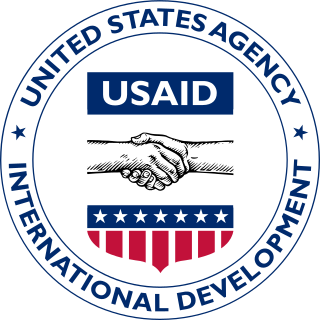
The United States Agency for International Development (USAID) is an independent agency of the United States government that is primarily responsible for administering civilian foreign aid and development assistance. With a budget of over $27 billion, USAID is one of the largest official aid agencies in the world and accounts for more than half of all U.S. foreign assistance—the highest in the world in absolute dollar terms.
In the United States government, independent agencies are agencies that exist outside the federal executive departments and the Executive Office of the President. In a narrower sense, the term refers only to those independent agencies that, while considered part of the executive branch, have regulatory or rulemaking authority and are insulated from presidential control, usually because the president's power to dismiss the agency head or a member is limited.

The Overseas Private Investment Corporation (OPIC) was the United States Government's Development finance institution until it merged with the Development Credit Authority (DCA) of the United States Agency for International Development (USAID) to form the U.S. International Development Finance Corporation (DFC). OPIC mobilized private capital to help solve critical development challenges and in doing so, advanced the foreign policy of the United States and national security objectives.

Andrew S. Natsios is an American public servant and Republican politician originally from Massachusetts, who served in a number of positions in the administrations of Governor Paul Cellucci and President of the United States George W. Bush.
The Foreign Agricultural Service (FAS) is the foreign affairs agency with primary responsibility for the United States Department of Agriculture's (USDA) overseas programs – market development, international trade agreements and negotiations, and the collection of statistics and market information. It also administers the USDA's export credit guarantee and food aid programs and helps increase income and food availability in developing nations by mobilizing expertise for agriculturally led economic growth. The FAS mission statement reads, "Linking U.S. agriculture to the world to enhance export opportunities and global food security," and its motto is "Linking U.S. Agriculture to the World."
The Commodity Credit Corporation (CCC) is a wholly owned United States government corporation that was created in 1933 to "stabilize, support, and protect farm income and prices". The CCC is authorized to buy, sell, lend, make payments, and engage in other activities for the purpose of increasing production, stabilizing prices, assuring adequate supplies, and facilitating the efficient marketing of agricultural commodities.

The Foreign Assistance Act is a United States law governing foreign aid policy. It outlined the political and ideological principles of U.S. foreign aid, significantly overhauled and reorganized the structure U.S. foreign assistance programs, legally distinguished military from nonmilitary aid, and created a new agency, the United States Agency for International Development (USAID) to administer nonmilitary economic assistance programs. Following its enactment by Congress on September 4, 1961, President John F. Kennedy signed the Act into law on November 3, 1961, issuing Executive Order 10973 detailing the reorganization.
In different administrative and organizational forms, the Food for Peace program of the United States has provided food assistance around the world for more than 60 years. Approximately 3 billion people in 150 countries have benefited directly from U.S. food assistance. The Bureau for Humanitarian Assistance within the United States Agency for International Development (USAID) is the U.S. Government's largest provider of overseas food assistance. The food assistance programming is funded primarily through the Food for Peace Act. The Bureau for Humanitarian Assistance also receives International Disaster Assistance Funds through the Foreign Assistance Act (FAA) that can be used in emergency settings.
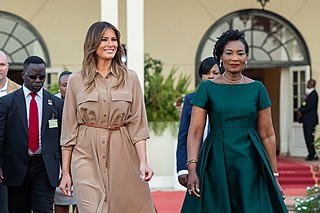
The United States established diplomatic relations with Malawi in 1964 after Malawi gained independence from the United Kingdom. Malawi's transition from a one-party state to a multi-party democracy significantly strengthened the already cordial U.S. relationship with Malawi. Significant numbers of Malawians study in the United States. The United States has an active Peace Corps program, Centers for Disease Control and Prevention, Department of Health and Human Services, and an Agency for International Development (USAID) mission in Malawi. Both countries have a common history and English language, as they were part of the British Empire.
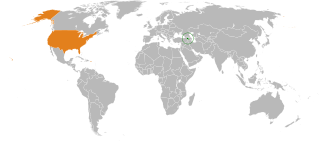
The dissolution of the Soviet Union in December 1991 brought an end to the Cold War and created an opportunity for establishing bilateral relations between the United States with Armenia and other post-Soviet states as they began a political and economic transformation. The United States recognized the independence of Armenia on 25 December 1991, and opened an embassy in Armenia's capital Yerevan in February 1992.

American–Uzbek relations formally began when the United States recognized the independence of Uzbekistan on December 25, 1991, and opened an embassy in Tashkent in March 1992. U.S.-Uzbekistan relations developed slowly and reached a peak following the U.S. decision to invade Afghanistan following the September 11, 2001 attacks. Relations cooled significantly following the "color revolutions" in the former Soviet republics of Georgia, Ukraine, and Kyrgyzstan in 2003–2005, and the Government of Uzbekistan sought to limit the influence of U.S. and other foreign non-governmental organizations (NGOs) working on civil society, political reform, and human rights inside the country.
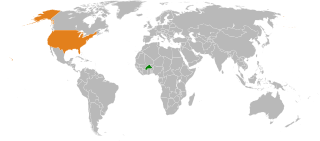
Relations between Burkina Faso and the United States are good but has been subject to strains in the past because of the Compaoré government's past involvement in arms trading and other sanctions-breaking activity.
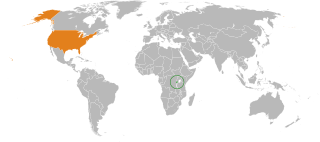
Rwanda–United States relations are bilateral relations between Rwanda and the United States.

Tunisia – United States relations are bilateral relations between Tunisia and the United States.
The America Creating Opportunities to Meaningfully Promote Excellence in Technology, Education, and Science Act of 2007, also known as the America COMPETES Act, was authored by Bart Gordon and signed into law on August 9, 2007, by President George W. Bush. The act aimed to invest in innovation through research and development and improve the competitiveness of the United States.
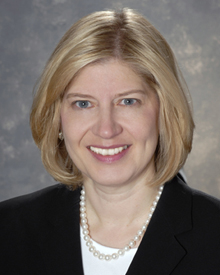
Leocadia Irine Zak serves as the ninth president of Agnes Scott College in Decatur, Georgia. Prior to that, Zak served as director of the U.S. Trade and Development Agency (USTDA), where she led an agency dedicated to encouraging economic growth in emerging markets and the export of U.S. goods and services to those markets. After being nominated by President Barack Obama in November 2009, Zak was confirmed by the U.S. Senate on March 10, 2010.

Nicholas Everett Hollis, born May 11, 1944, in Randolph, Vermont, became a leading trade expansionist over the last three decades of the twentieth century sponsoring dozens of high-level trade/investment missions and international conferences utilizing influential business and government positions in organizations, including the U.S. Chamber of Commerce, National Association of Manufacturers (NAM), Industry Center for Trade Negotiations (ICTN), U.S. Department of State/Agency for International Development (USAID), Agri-Energy Roundtable (AER), and most recently as president of The Agribusiness Council (ABC), a nonprofit organization founded by Henry Heinz II in 1967.

John Joseph Danilovich is an American business executive who was secretary general of the International Chamber of Commerce from 2014 – 2018. He previously held roles as a senior United States government executive, diplomat, and ambassador.

Daniel Fitzgerald Runde is a senior executive and strategist in international development, international trade, investment, global business and organizational change. Runde is the author of the book, "The American Imperative: Reclaiming Global Leadership through Soft Power."
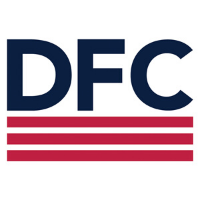
The United States International Development Finance Corporation (DFC) is a development finance institution and agency of the United States federal government. DFC invests in development projects primarily in lower and middle-income countries. First authorized on 5 October 2018 by the BUILD Act, the independent agency was formed on 20 December 2019 by merging the Overseas Private Investment Corporation (OPIC) with the Development Credit Authority (DCA) of the United States Agency for International Development (USAID), as well as with several other smaller offices and funds.















